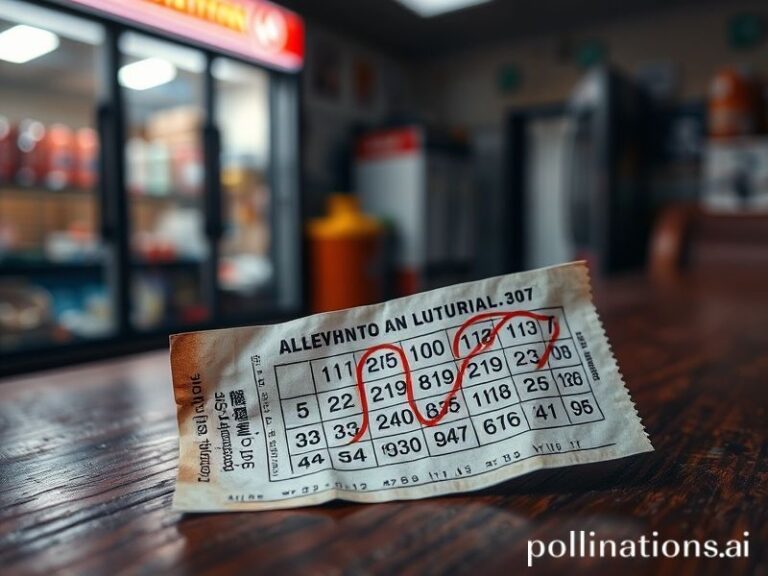Pachuca vs Querétaro: How a Provincial Mexican Fixture Became the Planet’s 3 a.m. Addiction
Pachuca vs. Querétaro: the fixture that sounds like a regional bus route but somehow matters to the algorithmic overlords who decide what 3 a.m. insomniacs from Jakarta to Johannesburg are allowed to scream at on their phones. Welcome, dear reader, to the globalised circus known as Liga MX, where two mid-table Mexican sides can still hijack the planet’s attention for ninety minutes plus whatever stoppage the VAR gods deem necessary to ruin your accumulator.
First, the geography lesson nobody asked for. Pachuca—birthplace of the Mexican coal industry and, more importantly, the cradle of a certain golden generation that once sold jerseys faster than you can say “Gulf Cartel laundering scheme.” Querétaro—land of baroque aqueducts, aerospace maquiladoras, and a stadium whose naming rights change more often than the average crypto exchange’s terms of service. On paper, it’s a provincial dust-up. In practice, it’s a Rorschach test for how far the beautiful game has stretched its tentacles across the planet.
Consider the audience. In a Lagos viewing party, young traders hedge naira on Bet9ja while watching a feed delayed just enough to allow Telegram tipsters to ruin the suspense. In a Berlin kneipe, a graphic-design intern nursing a €4 Club-Mate explains to baffled locals why the away kit looks suspiciously like the East German flag. Meanwhile, a Seoul esports streamer toggles between League of Legends replays and Liga MX because—well—sleep is for people who still believe in linear time.
The players themselves are walking HR PowerPoints on globalisation. Pachuca’s starting striker is a Uruguayan teenager on loan from a City Football Group satellite club in Montevideo. Querétaro’s creative mid is a Colombian who once washed out of the Belgian second division and now sells NFTs of his own highlights to finance his mother’s dental work. Somewhere in the stands, an American YouTuber live-streams himself ranking tacos al pastor for 1.2 million followers, pausing only when the away end sets off pyro that looks dazzling on 4K but smells like burnt homework.
And then there is the meta-narrative: the league’s broadcast deal with a streaming platform whose user agreement is longer than the Mexican constitution. Every misplaced back-pass is data-mined, repackaged, and sold to betting syndicates in Southeast Asia faster than you can mutter “data is the new oil.” The same algorithm that recommends Korean skincare routines to Canadian teenagers now decides that a 0-0 draw in Hidalgo is precisely what a drowsy dentist in Perth needs to keep his subscription auto-renewing.
Is it sport or is it a late-capitalist fever dream? Yes. The referee checks the pitch-side monitor like a man consulting a pocket mirror to confirm he still exists. A lone pigeon struts across the centre circle, perhaps the only participant not subject to image-rights litigation. The stadium announcer, bilingual and apologetic, reminds patrons that racist chanting will be prosecuted “con todo el peso de la ley,” which roughly translates to “we’ll release a statement on Twitter and hope the sponsors stay.”
Yet, somehow, the match delivers. A thunderous 30-yard volley in the 73rd minute lights up the scoreboard and every notification centre from Mumbai to Montevideo. For one brief, shining moment, the planet’s timeline synchronises: thumbs pause mid-scroll, emeralds of cash rain down on in-play markets, and a million push-notifications bloom like digital poppies. Then the VAR review begins. The goal is chalked off for a toenail offside detected by a semi-automated system named after a Norse god. The pigeon shrugs—if pigeons could shrug—and flies away, presumably to file a copyright claim.
Final whistle: one-one, a scoreline as morally ambiguous as the average tax-avoidance scheme. Pachuca climbs to seventh; Querétaro slips toward the relegation play-off—an invention so byzantine it could only have been devised by the same committee that schedules COP climate summits.
And tomorrow the carousel spins again, because somewhere on Earth it is always 90 minutes from kickoff, and the feed must never die. Sleep tight, planet. The next fix is already buffering.







